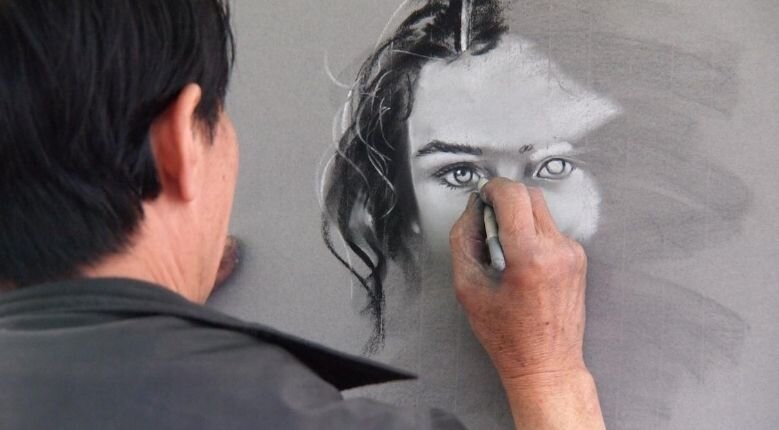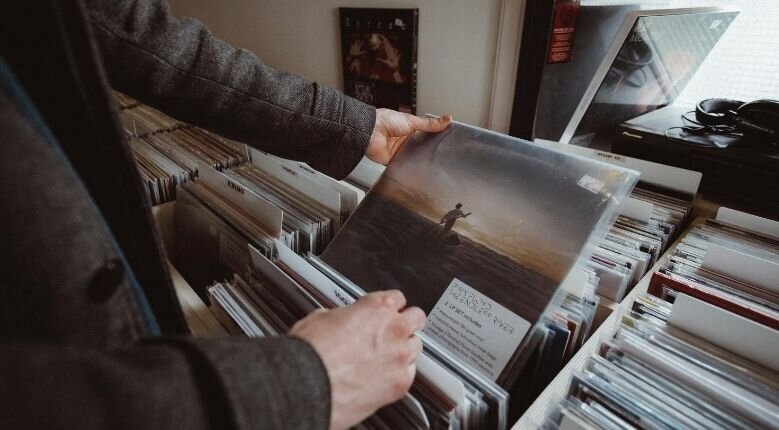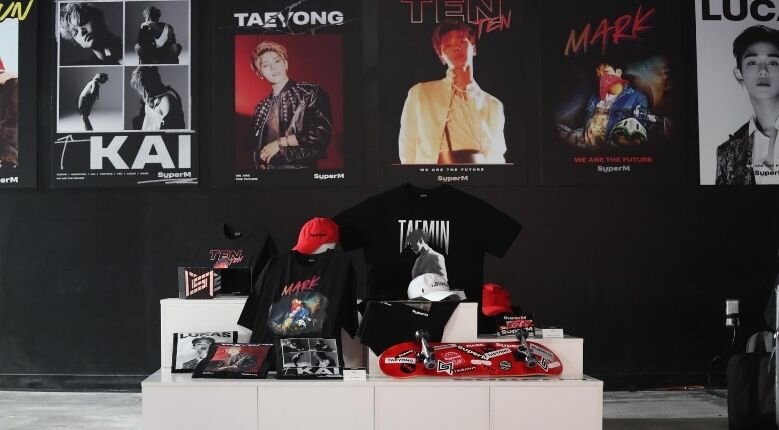Discovering and supporting local and international artists have become a lot easier. On the flip side, controversies and scandals involving them have become easier to spread too. With artists and their works being directly linked, the separation between the creator and their art becomes blurry.
Take J.K. Rowling for instance. Potterheads all over the world were outraged when her transphobic comments came to light, resulting in conflicting opinions on her work — which has resonated with many — and personal preferences.

Are you supporting controversial artists at the moment? (Photo from Larm Rmah via Unsplash)
Same goes with big shot Hollywood producer Harvey Weinstein, whose name has headlined many critically acclaimed films — Lord of the Rings, Kill Bill, and Scream, to name a few. After countless accusations about his alleged predatory behaviour, making him the "first major figure taken down by the #MeToo movement". This has led to the question of how films under his production company — past, present and future — should be perceived.
So now we ask: how do we enjoy — or not enjoy — art from controversial artists? We sat down with Network for the Promotion of Asian Cinema (NETPAC) juror, executive director of the Quezon City Film Development Commission, and University of the Philippines Film Institute (UPFI) director Ed Lejano to weigh in on this intriguing conflict.
What makes an artist controversial?
Right off the bat, Ed pointed out that being controversial is not ultimately good or bad. An artist can be controversial for either the right or wrong reasons, which makes the topic of whether or not they should be supported not as easy as “black and white.”
“For me, the controversy should not overshadow the work of an artist,” Ed said. “An artist has to be true to their vision and there’s always an artistic truth to what they do. If, along the way, the work or the creator ends up being controversial, then that’s just a circumstance.”
However, he also explained that there is a difference with controversy following after a work has been pushed out versus an artist being “calculatingly controversial.” This is when an artist deliberately chooses to stir the pot without any sincere intentions behind their work, making their creation “superficial” and “not representative of anything.”

Separating the artist from the art: is it possible? (Photo from Samuel Castro via Unsplash)
“If someone creates something that speaks for something — that it is a work that needs to be consumed, needs to be seen, needs to be heard — to some extent the controversy would be understandable and tolerable and the personal life of someone should not overshadow their artistic output,” he claimed.
“An artist can be controversial and add a layer of intrigue and interest in the public sphere. However, if they end up not being able to recover from it, that’s when they become just like any other media personality.”
Explaining the overlap between the art and the artist
It is easy to separate the artist from their work especially if their craft is a lot larger than they are as personalities, but what happens when artists are as recognisable as their work to the point that it is hard to picture one without the other?
In the case of Monique*, 31, who considers herself a major Potterhead — she owns a couple of sets of the books (in different editions) as well as official merchandise from the franchise — J.K. Rowling has been her hero until the issues about the author’s anti-trans statements surfaced. As a fan, she “couldn’t help but feel betrayed” and not understand how someone who “created a world that is all about fighting discrimination and evil” can have such “negative beliefs.”
Nevertheless, she wouldn’t be able to completely dismiss Rowling’s work because they are a “huge part” of her life and, in her opinion, the Potter universe has already “expanded outside of just J.K. Rowling herself.”
“I stand by it because of the community, of the people I’ve met because I’m a Potter fan, and because of what the books and the movies meant to me growing up,” she said. “I’ll probably not support any more releases from [J.K. Rowling] in the future, but I don’t see my relationship with Potter changing because I believe there’s more to it than just her authorship. It may be weird to say this, but to me, her books have taken a life of their own beyond just what she wrote.”
For KC*, 23, on the other hand, who is a huge fan of K-pop, understanding that art involves not just the artist but other people who have also collaborated with them to produce the final output helps in “easing the pains of hearing bad things about the people or the organisation you chose to support”.

Is art the work of its sole creator or a collective? (Photo from Mitchel Lensink via Unsplash)
As someone who listens to a lot of artists from YG, a Korean talent agency that has its fair share of controversies, she said it's “quite tricky to simply boycott the entire company because of the mistakes of a few, no matter how high up in the hierarchy they are”. She feels that it is both her responsibility to “support the hard work of the artists and even the staff who have nothing directly to do with the scandal” but still “be vocal about [the agency’s] alleged scandals.”
Same goes for Western film and music buff Deigh, 25, who said that if a grave issue about her favourite artists comes to light, she is “more than willing to drop them without hesitating.” She clarified, however, that she wouldn’t do so just because of unfounded allegations, but if an artist proves to be problematic, then “they’re not worth stanning at all” and she would be at the forefront, calling them out.
Ed weighed in on these ideals, saying, “If someone becomes famous because of their body of work, with it comes a certain responsibility and you take that fame and celebrity-hood into a higher level.”
He explained that once the personal life of an artist takes over their professional life, to the extent that they are driving the industry they’re in towards a bigger and more complex problem, that’s when the overlap between the art and the artist happens. This is what happened with Weinstein, Kevin Spacey and Woody Allen, whose controversial personal lives are intertwined with how they operate as artists within a larger system.
“We have to remember, though, that there will always be a good and a bad side to supporting someone. This follows whether an artist is known to be controversial or not,” said Ed.

K-pop, for one, is an industry that has both its good and bad side. (Photo from Joel Muniz via Unsplash)
His example is the K-pop industry, which, to some extent, has a dark side to it when you consider all the cases of personalities struggling with mental health, as well as cases of excessive and intrusive fan culture. Even so, its flip side is how powerful their fan community can be, to the point that they can drive awareness on heavy social topics like the Black Lives Matter movement.
Controversial figures and situations, whether they're upfront or on the sidelines, are and will always be part of the entertainment industry — or any industry in general.
So should we or should we not support controversial artists?
“People are ultimately human and make mistakes,” reminded Ed. “Even artists must be allowed to have their redemption. It’s just not easy because they are public figures and with today’s age, your past can easily haunt you at a quick [internet] search.”
Be that as it may, he still pressed on that it’s not as easy as apologising and assuming that all is well and back to normal.
“It all boils down to authenticity. One mistake is forgivable. But if it’s continuous bad behaviour, it’s a whole other story. At the end of the day, things become problematic when things are simply viewed as black and white,” he said.
 Supporting and blind following are two different things. (Photo from Oscar Keys via Unsplash)
Supporting and blind following are two different things. (Photo from Oscar Keys via Unsplash)
Ed also stressed that critical thinking is always the key “especially in today’s cancel culture, holier-than-thou environment”. Just like varying opinions we may have with our peers or colleagues, he reiterated that sometimes the works or statements of these artists usually come from one’s own personal experience, which may or may not be aligned with how their work is perceived.
In that regard, it all boils down to us as consumers of these artists’ craft. After all, the experience is simply a transference of thoughts from the artist to the reader, which, just like any other form of knowledge, becomes the individual’s own as soon as it enters their consciousness.
Outside of the sentimentality, there’s also one thing that holds power over this argument: money. While the choice to enjoy — or not enjoy — the art of controversial artists is quite subjective, providing support through your purchasing power is an entirely different thing.
Ed added: “Supporting someone and enjoying their work is one thing, but ‘blind following’ and not holding someone accountable for their actions just because you support them or their work is where the line must be drawn.”
*Names of some of the interviewees were changed to maintain their privacy.
Next, we chat with three artists who are constantly challenging the status quo.
Comments, questions or feedback? Email us at [email protected].








